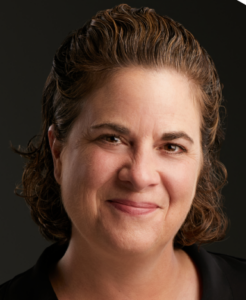I remember it like it was yesterday—graduating from college and trying to find that elusive first job. I had a degree in history from a liberal arts school in upstate New York, and absolutely no clue what direction to take. This was the 1980s (yes, do the math), and while the job market may look different now, the stress and uncertainty of entering the workforce for the first time hasn’t changed.
That early experience shaped why I do what I do today. After three decades of coaching and interviewing more than 20,000 people, I’ve seen every kind of candidate across all industries and career stages. Whether you’re still in college, just graduated, or making a pivot, here’s what I’ve learned—and what I wish someone had told me at the start.
1. You Have Something Unique to Offer
One of the most common questions I hear is: How do I stand out?
Here’s the truth: the key is not to mold yourself into what you think employers want. It’s about gaining clarity on what you have to offer, and how to communicate it. What are your motivations? Your values? Your strengths?
You don’t need a polished “elevator pitch” from day one—but you do need a value proposition. In a few sentences, you should be able to say:
Who you are
What drives you
What you bring to the table
This is your anchor—and it will guide everything from your resume to your interviews.
2. Your Career Will Not Be a Straight Line
Very few careers follow a perfectly linear path. Plans shift. Interests evolve. What you thought you wanted as a freshman may not match where you are today.
Case in point: I started college pre-med. I ended up majoring in history, and eventually worked in finance and coaching. And I now work with medical professionals all the time! So don’t panic if you’re changing your mind. That’s not failure—it’s growth.
3. Everything is Connected—and Transferable
Stop thinking in silos. Just because you majored in English or history doesn’t mean you can’t work in tech or business. It’s all about how you translate your skills.
Studying history taught me to analyze context and outcomes. Today, that’s what I do as a career coach—helping people understand their career story and identify what’s next.
If you worked a retail job, led a campus club, or volunteered somewhere meaningful—those experiences count. Learn to frame them as evidence of responsibility, initiative, or problem-solving.
4. Achievement Alone Won’t Land You the Job
Yes, grades matter. So do internships. But they’re only part of the story.
Employers want to see:
How you think
What motivates you
Whether you can learn, grow, and contribute
Don’t just list what you did—explain why it matters.
5. Your Resume: Keep It Simple, Significant, and Tailored
Your resume is a highlight reel, not a transcript. Keep these four tips in mind:
Consistency: Make formatting uniform top to bottom.
Conciseness: Aim for clarity, not cleverness.
Simplicity: Avoid fancy designs that confuse applicant tracking systems (unless you’re applying for a creative role).
Tailoring: Use keywords from job descriptions—this boosts your odds of making it past digital gatekeepers.
And no, your resume doesn’t have to be one page. If you have rich experience, don’t cram it in. Just make sure every line earns its place.
6. The Interview: Preparation Wins
Want to ace your interview? Do your homework. Study the organization. Understand the job. And anticipate questions.
Also, know your own resume. If you list a research project or class—be ready to talk about it. Employers can tell when a candidate is just checking boxes.
And above all, be yourself. Be proud of what you bring, even if it’s not “perfect.” No one checks every box. Conviction, enthusiasm, and clarity are often what seal the deal.
Final Thought: It’s a Marathon, Not a Sprint
You don’t need to have it all figured out today. But you do need to stay curious, stay open, and stay true to what drives you.
Every experience adds up. Every job, every class, every leadership role helps you build the story of who you are and what you offer.
So be kind to yourself. Trust your path. And when in doubt, ask for help—we all started somewhere. I’d love to connect for a free chat online: The College Coaches.


